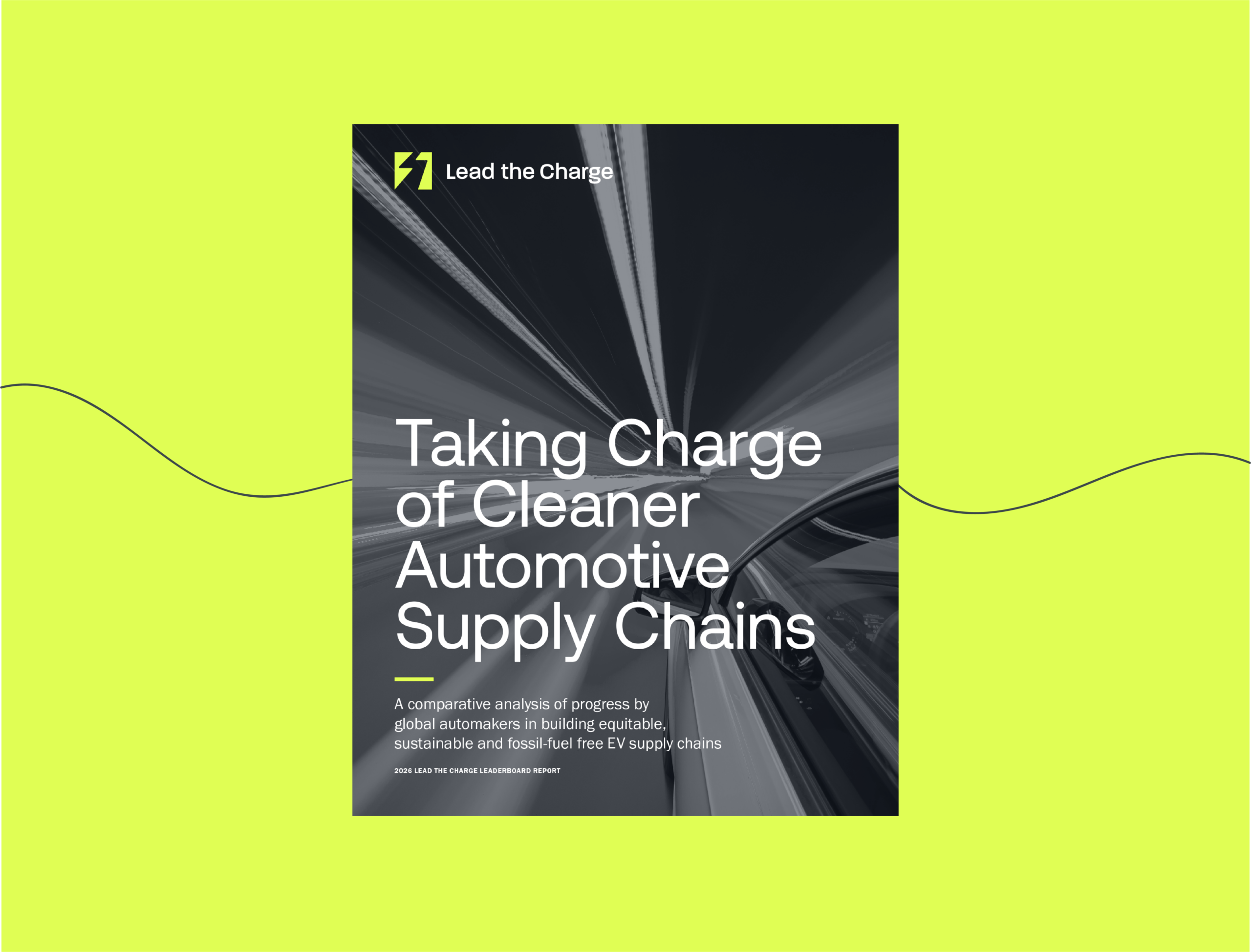Ranking
Comparison
Total Score
Environment
Human Rights
Summary
Volvo has had another strong performance this year. The company has made progress in seven out of eight Leaderboard subsections, with a 6 percentage point improvement overall. Its steady improvement has allowed the company to move up one place in the Leaderboard, now ranking 3rd.
Volvo retains the top position in Climate and Environment, improving its score by 11 percentage points and achieving a total score more than double the average for this section. Volvo continues to show strong performance in steel and aluminum decarbonization where the company maintains an even larger lead over industry peers. Volvo is also the only company that has published disaggregated emissions data from steel, aluminum and batteries at the vehicle-model level through LCA reports.
Despite its leadership in steel and aluminium, Volvo lacks progress in the battery subsection, scoring less than half of the top three performers. The company’s acquisition of NOVO Energy with the aim to develop sustainable batteries offers an opportunity for the company to improve its score in this subsection.
While also improving on human rights, this progress has been more modest. Volvo improved by an average of 3 percentage points on all human rights subsections except for Workers’ Rights, where the company actually regressed by 6 percentage points. This means that on average, the company only managed a meagre 1 percentage point improvement overall, causing the company to slide down the human rights ranking from 6th to 7th place. The company did however take initial steps on Indigenous Peoples’ rights, although its score for this subsection is still only 8%.
Key Findings
- Requires suppliers to set water reduction targets in its latest CoC for business partners, with plans to expand supply chain water management reporting within two years.
- Published new position papers on nature and biodiversity (September 2024), sustainable materials (September 2024) and responsible sourcing (January 2025).
- Discloses comprehensive and granular LCAs for its EVs, including disaggregated emissions data from steel, aluminum and batteries
- The only company to have set disaggregated targets to increase its use of both low-carbon steel and aluminum, and recycled steel and aluminum.
- Discloses disaggregated quantitative data on the implementation of its battery recycling, repair, reuse and repurposing activities.
- One of very few companies to provide a complete description of risk assessment processes, including consultation with external human rights experts, but is extremely limited in the level of detail disclosed concerning identified human rights risks, including those associated with conflict or transition minerals.
- Has already introduced a first battery passport in line with the EU Battery Regulation that can be accessed via an app and QR code and includes information on the country of origin of the cobalt, nickel, graphite, lithium, and mica in the vehicle’s battery.
- Still failing to disclose a list of smelters/refiners in the supply chain, but discloses some information about smelter RMI conformance, and engages with extractive companies regarding IRMA auditing.
- Has begun to require suppliers to respect FPIC, and to provide some minimal indication to suppliers about what is expected. However, does not disclose evidence on how the company is actually enforcing these requirements.
- Remains one of only three automakers to commit to a living wage, and has now begun to explicitly require suppliers to pay a living wage.
Score Breakdown
Fossil-Free & Environmentally Sustainable Supply Chains
General
Steel
Aluminum
Batteries
Compare by year
Human Rights & Responsible Resourcing
General
Minerals
Indigenous' Rights
Workers' Rights
Compare by year
Supply Chain News & Progress
Latest on Volvo
Supply chain transformation is a risk management imperative and opportunity for a competitive edge. Leading brands are already securing a first-mover advantage and leveraging their power to transform legacy supply chains into a force for good. The revolution is underway.
Volvo to issue world’s first EV battery passport
Geely & Volvo-owned Polestar sets goal to produce climate-neutral car by 2030
Geely, together with Volvo, own a majority stake in the carmaker Polestar which has set an ambitious target of producing a completely climate neutral production car that fully eliminates greenhouse gases from production by 2030. Polestar has also partnered with Circulor to use blockchain technology to track a wide range of raw materials and achieve more sustainable supply chains. With the new partnership, Polestar and Circulor have set a progressive scope and ambition that aims to entail a range of raw materials, focusing on those with identified risks in either environmental and/or human rights, such as nickel, mica, manganese, graphite and lithium, amongst others.
Our Vision
01 — Equitably
Respecting and advancing the rights of Indigenous Peoples, workers, and local communities throughout the supply chain.
02 — Sustainably
Preserving and restoring environmental health and biodiversity across supply chains, while reducing primary resource demand through efficient resource use and increased recycled content.
03 — Fossil-free
100% electric and made with a fossil fuel-free supply chain.
